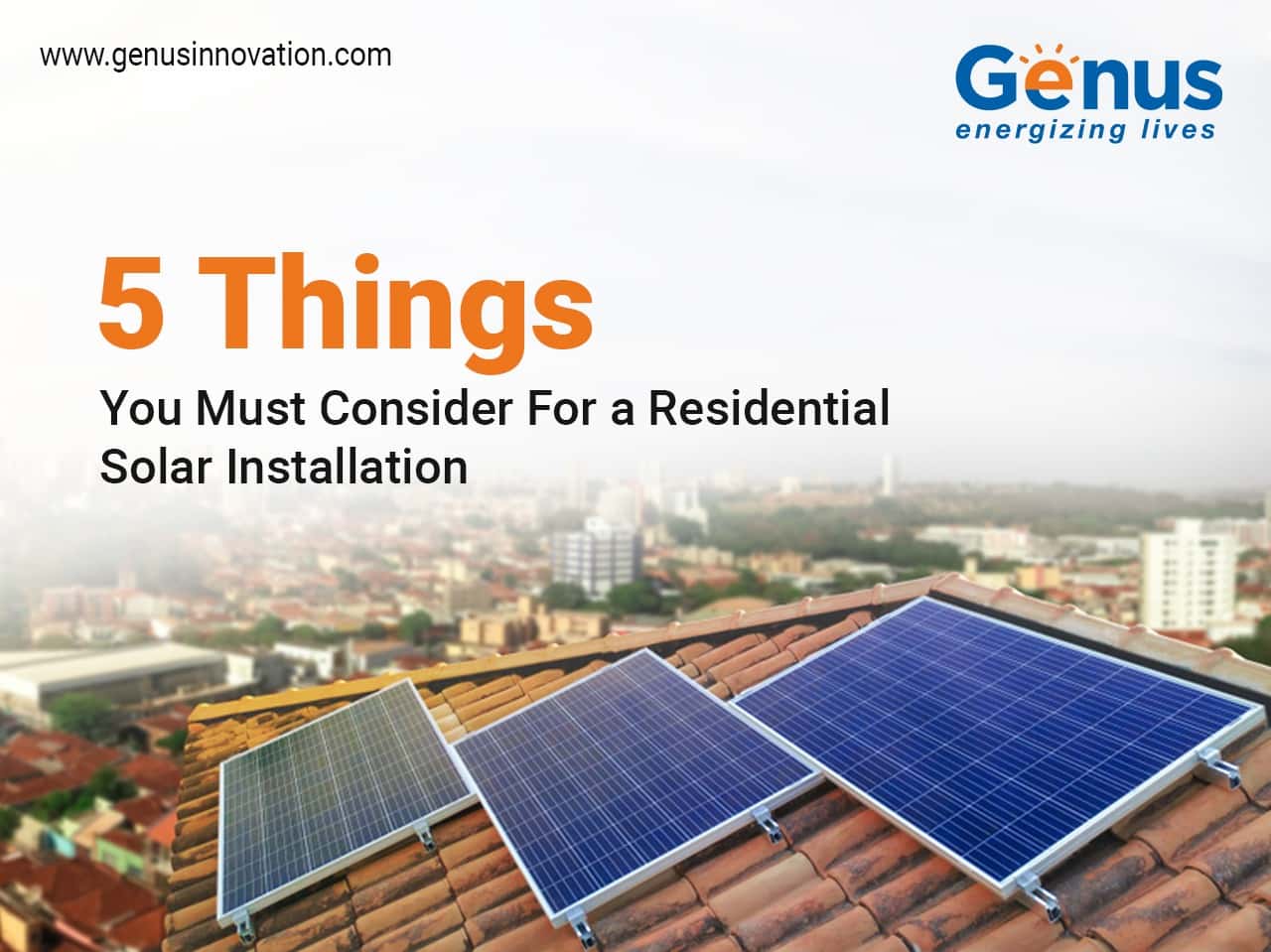Residential solar power is becoming increasingly popular, and for good reason. From significant energy savings to contributing to a cleaner environment, solar energy offers numerous advantages for homeowners. In fact, its adoption has grown by an impressive 11 times over the past five years, showing just how much interest there is in this sustainable energy source. However, while switching to solar has become more accessible, there are several key factors you should consider to maximize the benefits of your residential solar installation.
In this article, we’ll explore those essential factors—from choosing the right type of solar panels to determining the best location for installation. Whether you're new to solar or looking to upgrade, these insights will help you make an informed decision. Keep reading to discover what you need to know before going solar.

### 5 Things You Must Consider For a Residential Solar Installation
#### 1. Condition and Layout of the Roof
Before installing solar panels, it's crucial to assess the condition and layout of your roof. A strong, well-maintained roof is essential for supporting the weight of the panels and ensuring long-term performance. If your roof needs repairs, it’s wise to address those issues first to avoid future complications. Additionally, consider the material, orientation, and available space on your roof. The direction your roof faces—especially south or southwest—can significantly impact the efficiency of your solar system.
#### 2. What Type of Solar Panels to Choose
The type of solar panel you choose can affect both your initial investment and long-term savings. There are three main types: monocrystalline, polycrystalline, and thin-film. Monocrystalline panels are known for their high efficiency and durability, making them ideal for homes with limited space. Polycrystalline panels are more affordable but slightly less efficient. Thin-film panels are flexible and lightweight, though they generally require more space. At Genus, we offer high-quality solar products designed for maximum performance and reliability.
#### 3. What’s the Optimum Location?
Location plays a critical role in the effectiveness of your solar panels. Ideally, your home should receive ample sunlight throughout the day. While solar panels can still generate electricity on cloudy days, obstructions like tall buildings or trees can reduce output. It’s important to evaluate your property’s exposure to sunlight and ensure that your panels are installed in a spot where they can capture as much light as possible. South-facing installations typically provide the best results.
#### 4. How Will You Finance Your Residential Solar Installation?
Solar panel installations can be a significant upfront investment. Before proceeding, it’s wise to plan your budget and explore financing options. You may consider taking out a loan, opting for a solar lease, or even using a hybrid system that combines solar with grid power. At Genus, we offer cost-effective solar solutions, including reliable solar inverter batteries, to help you save money in the long run.
#### 5. How Long Before You Break Even?
One of the biggest motivations for switching to solar is the potential for long-term savings. However, it’s important to calculate your break-even point—the time it takes for your savings on electricity bills to offset the initial cost of the system. This period varies depending on the size of your system, local electricity rates, and the efficiency of your panels. A well-designed system can typically break even within 3 to 4 years, after which you'll start seeing real financial returns.
### Wrapping Up
By considering these five key factors, you can make a confident and informed decision when choosing a residential solar setup. Switching to solar not only helps reduce your carbon footprint but also offers long-term financial benefits. At Genus Innovation, we provide premium solar products and services to support your transition to clean, renewable energy. Connect with us today to learn more about how you can embrace a sustainable and cost-effective lifestyle.
Insulation Material Milling CNC Machined Parts
insulation material cnc machining, insulation material cnc machined parts, insulation material processing, insulation material CNC processing
Guangdong Hongwang New Materials Technology Co., Ltd , https://www.hwcncmaterial.com